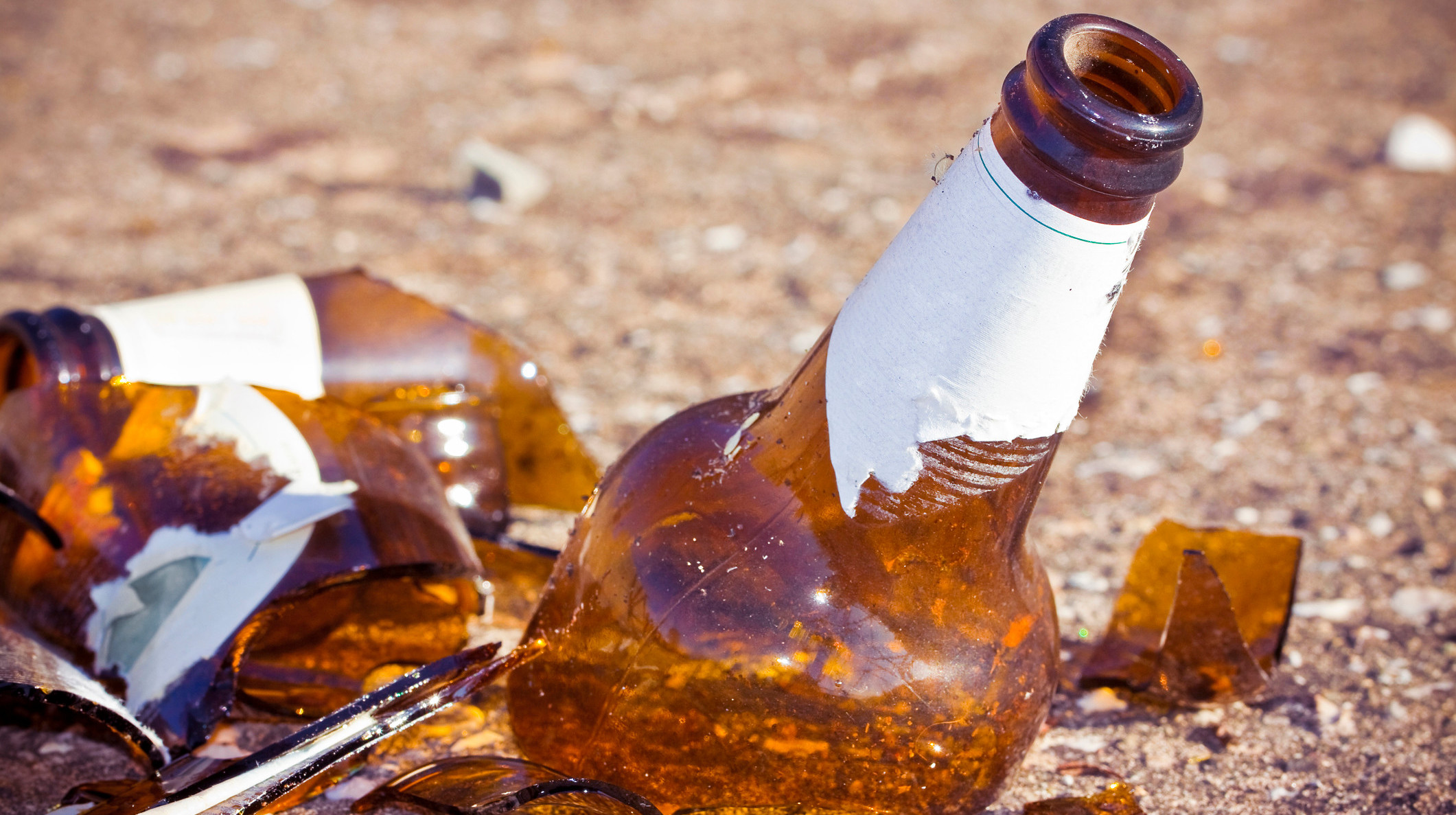Yes, Beer Bottles Can Spontaneously Explode
In my former job as editor at a craft beer magazine, I worked in an office full of beer bottles and cans. Stacked on shelves, refrigerated, cellared—they were everywhere. One evening, I was working alone in the office when a sound like a grenade going off jolted me out of my seat. After my heart started beating again, I peered into the main office room, where a can of beer had exploded and sent foam cascading across the room.
Sadly, this isn't unheard of. Today we have just the latest example of a brewery, Milwaukee's Lakefront Brewery, recalling some of their packaged beer over exploding concerns. In this case, the beer at issue is My Turn Junk, a sour beer brewed with cherries. Those cherries, it turned out, contained wild yeast on their skins (as fruits do) that continued fermenting the sugars in the bottled beer, creating carbon dioxide and leading to a build-up of pressure. Kaboom. An industry guide for brewers published by Craft Beer & Brewing notes that "the recent trend of adding unfermented fruits and extracts to unfiltered beer just before packaging represents an extreme risk for refermentation." Flash-pasteurizing the finished beer or adding the fruit before fermentation decreases the viability of the yeast and lessens the risk of explosion.
Keeping beers refrigerated generally also alleviates the explosion risk because it keeps the yeast dormant, and because refrigerating beer preserves its overall quality, that's always the preferred storage method. But not every customer, or retailer for that matter, keeps beer cold all the time. Nor should they have to. Brewers need to follow quality-assurance best practices just like any other manufacturer. Imagine if any can of garbanzo beans carried the risk of becoming a legume projectile.
